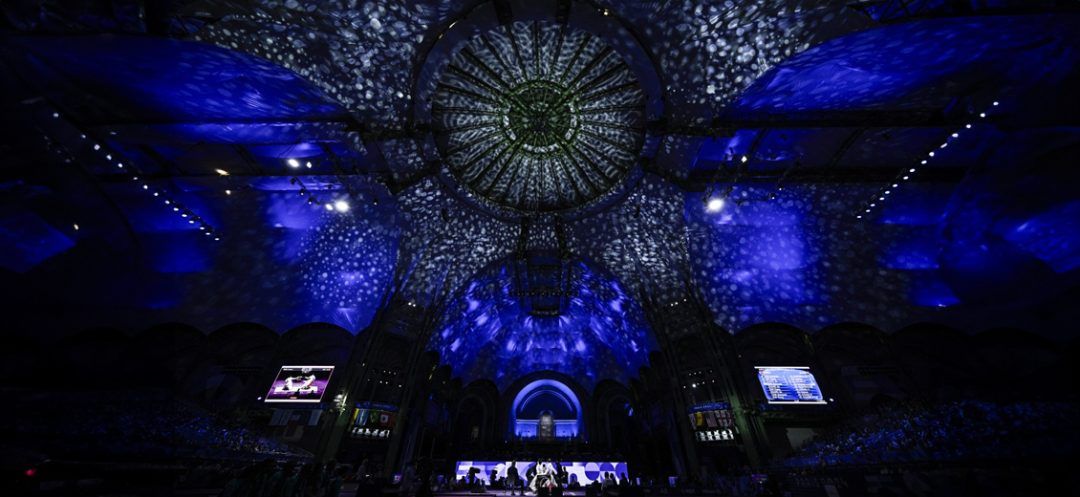
©Photo Credit: Julien De Rosa / AFP
Electronic music, once marginal, now headlines the closing ceremony of the Paris 2024 Paralympics.
Once seen as experimental and on the fringe, electronic music has now swept across the globe, culminating in a prominent role at the Paris Olympics. This genre will receive its due recognition as a vibrant part of French cultural heritage at the closing ceremony of the Paralympics, showcasing its power to energize audiences worldwide.
In Saint-Denis, at the Stade de France, a site steeped in history as the burial ground for French kings, 24 DJs are poised to showcase their craft in a spectacular finale of sound and visuals lasting about an hour.
Described by Victor le Masne, the musical director of the ceremonies, as a "sonic odyssey," these diverse artists will unite to craft a soundtrack that encapsulates the French touch. This term represents the globally recognized and exported strand of French electronic music. French electronic musician Valentin Brunel, known professionally as Kungs, shared his enthusiasm with AFP: "French electronic music holds a significant place both in France and around the world. I am delighted it is being celebrated on such a grand stage."
This musical movement had previously secured a prominent spot at the Olympics' closing ceremony on August 11, featuring performances by the group Air and Kavinsky, with singer Angèle joining for a rendition of Nightcall. Earlier in the evening, the duo Justice had their tracks resonate throughout the stadium.
Kavinsky is set to perform again on Sunday, alongside a diverse lineup of DJs, ranging from the renowned Martin Solveig and Cassius to the more niche Chloé Caillet and Tatyana Jane, with an introduction by Jean-Michel Jarre, a titan of the electronic music scene.
Jean-Michel Jarre, an heir to the innovative spirit of composer Pierre Henry, traces the roots of electronic music back nearly a century in France and Europe. During the 1920s, Maurice Martenot sought to create new musical expressions, leading to the invention of the ondes Martenot, one of the earliest electronic instruments, in 1928.
As music intertwined with technological advances, electronic sounds moved from academic settings to mainstream festivals, evolving dramatically with the introduction of synthesizers and computers. British and German artists like White Noise and Kraftwerk have made significant contributions, alongside France's own Daft Punk.
Jean-Michel Jarre compares electronic music to American rock, noting its global influence and asserting its cultural legitimacy alongside other art forms like film and literature. In the early 2000s, France also saw the emergence of electro dance, the first and only urban dance originated in the country, which gained popularity through the internet.
The success of electronic music also stems from its compelling formula: a tempo that mirrors the heart rate during moderate physical activity, coupled with tracks that often eschew lyrics, making it ideal for global dance floors.
César de Rummel of Ofenbach points out, "It's a physically engaging music because of its intense beats and bass, which literally move us to dance." Thomas Jolly, the artistic director of the Olympic ceremonies, sums it up: "Celebrating it is not just festive; it's a nod to our cultural legacy."
With AFP
Read more



Comments